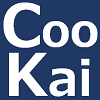キーワード難易度 | WEBマーケティング用語
キーワード難易度
キーワード難易度は、検索エンジンでの競合性を評価する重要な指標です。

この調査の結果は非常に重要です。競合するキーワードの順位付けに関するGoogleのランキングアルゴリズムの動作をより深く理解できるようになるからです。キーワードの難易度を数値化するには、キーワードの検索に接続すると、キーワードの検索ボリュームが大きくなり、ほとんどの場合、キーワードはより積極的になります。競合するページの数がより複雑になればなるほど、キーワードが競争力を持つ可能性が高くなります。上記の説明では、特定のキーワードの検索ボリュームが高く、競合するページが複数ある場合は、Googleでランク付けするのが難しいキーワードであることが明らかです。
主な目的は、Googleが例外的に競争の激しい条件のために大規模なウェブサイトをランク付けすることを好むかどうかを発見することです。尺度1:選択されたキーワードの最終リストを作成します – サンプリング分布に基づいて合計30語のキーワード、難易度が異なります。ステップ4:位置1から位置10までの各キーワードの索引付きURLの一般的な数を計算します。方法5:インデックス付きURLの典型的な数とキーワードの難易度の間に関係プロットを作成します。前節で設定した方法に従ってデータを収集した後、キーワード難易度を計算した。あなたはおそらく、非常に競争の激しいキーワードは、中程度のキーワードや単純なキーワードと比べて高いキーワード難易度を持っていることに気づいたでしょう。
外れ値が取り除かれ、インデックスされたページの平均数が再計算されると、新しいランキングが、トップランキングドメインの平均インデックス付きURLにタグ付けされたプライマリデータテーブルに追加されます。要するに、大きなドメインは難しいキーワードのランクのドメインです。これを別の言い方で言うと、Googleは通常、競争の激しい条件で大きなサイトをランク付けすることを優先しました。簡単なキーワードの場合、Googleではより少ない数のインデックス付きURLを持つ小規模なWebサイトを返します。
それにもかかわらず、LCDや検索エンジン最適化などの非常に難しいキーワードの場合、Googleは大きなウェブサイトのランキングを優先します。
Keyword difficulty is an important indicator to evaluate competitiveness in search engines.
The outcome of this study is very important, because it’ll lead us to a more profound comprehension of the behaviour of Google’s ranking algorithm with regards to ranking competitive keywords. To quantify keyword difficulty, you’ll connect it with the keyword searches, the greater the keyword search volume, the more aggressive the keyword, in most cases. The more complicated the number of competing pages, the more the key word would are likely to be competitive. In the above description, it is evident that if a particular keyword has a high search volume and several competing pages, it’s a difficult keyword which is why to rank in Google.
The primary objective is to discover whether Google prefers to rank large web sites for exceptionally competitive conditions. Measure 1: Make a final list of key words chosen – a total of around 30 key words based on the sampling distribution, with different difficulty. Step 4: Compute the typical number of indexed URL for each keyword from position 1 to position 10 domains. Measure 5: Make a relationship plot between typical number of indexed URLs vs. Keyword difficulty. Data was collected in compliance with the method set in the preceding section, and after that keyword difficulty was computed. You have likely noticed that the incredibly competitive key words have high keyword difficulty values as compared with medium and simple key words.
When the outlier has been removed as well as the average number of indexed pages are re computed, a brand new column may be added to the primary data table tagged Average indexed URLs of Top Ranking domains. In a nutshell, big domains are those of rank for difficult keywords. Stating this in another way, Google usually preferred to rank big sites for highly competitive terms. For simpler keywords, Google returns smaller web sites with a lesser number of indexed URLs.
Nevertheless, for extremely difficult keywords like LCD and Search engine optimization, Google prefers ranking big websites.
